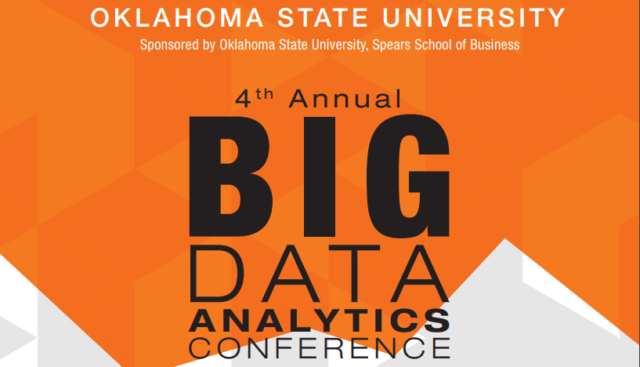In his 2016 book The Rise and Fall of American Growth, economic historian Robert Gordon explains how the technology-driven, rapid economic growth from 1870 to 1970 shaped the modern world. Since then, productivity has stagnated despite amazing digital discoveries. Gordon argues that the now-stalled technological productivity of nearly a half-century ago was “a one-time-only event.” As Gordon implies, if wages remain stagnant and the laws of supply and demand aren’t replaced, the miraculous potential probably won’t be realized.
Some insights into why all of this digital technology has been so disappointing in terms of producing a better world were offered up earlier this month during the fourth-annual OSU Big Data Analytics Conference. Conference speakers also previewed ways that Big Data and other breakthroughs could transform the future.
It’s the apps, stupid
A former executive at Apple, the GAP and Tesla, George Blankenship’s advice to entrepreneurs might reveal what it would take to put the human dimension back in its proper place, thus benefiting our economy. Before 2001, Apple was only “for cult people,” but Blankenship invested hours of time in stores and other places watching and listening. He set out to “ambush people” by introducing Apple when they weren’t thinking about computers. By 2007, he understood that the keys to selling Apple products were innovation, design, simplicity and, above all, ownership experience. In the spirit of Big Data, Blankenship focused on outcomes. The Apple Store outcome put smiles on peoples’ faces.
The next phase of economic growth will be directed toward millennials, a generation in which 80 percent or more sleep with their smart phones by their bed. Blankenship noted that it wasn’t the iPhone itself that produced the disruptive innovation we are seeing. It was the apps. (And apps will soon know when you’ve visited the marijuana dispensary, what time you’ve arrived home and if you’ve turned on an episode of The Simpsons so an order of Doritos can arrive 30 minutes later.)
‘Augment human judgment’
As much as I’d admire such an app experience, I believe the next speaker, Bill Schmarzo, chief technology officer for Dell EMS Services, provided a name for it, which helps explain author Gordon’s research on stalled productivity. To this Baby Boomer, such apps are merely “paving the cow path.”
The distinction (which I fear has been ignored) that Schmarzo made came in the form of a warning to not monetize data itself. Instead, monetize the insights that come from data. The goal is to use Big Data to “augment human judgment.”
Just as Blankenship stressed conversations with customers, Schmarzo said that data people must articulate hypotheses about what they want to learn from data. In turn, those hypotheses help create forums for conversations about the questions that need to be asked.
We must wrestle with these technologies
And that brings us to the question of the era: Will Big Data, artificial intelligence and other digital technologies drive us toward a monetized world where we will instantaneously know the price of everything but the value of nothing? Or will we use its insights and connectivity to enhance face-to-face communication?
We can’t make sense out of our world without wrestling with the rise of Big Data, artificial intelligence and other information technologies that are transforming it.























